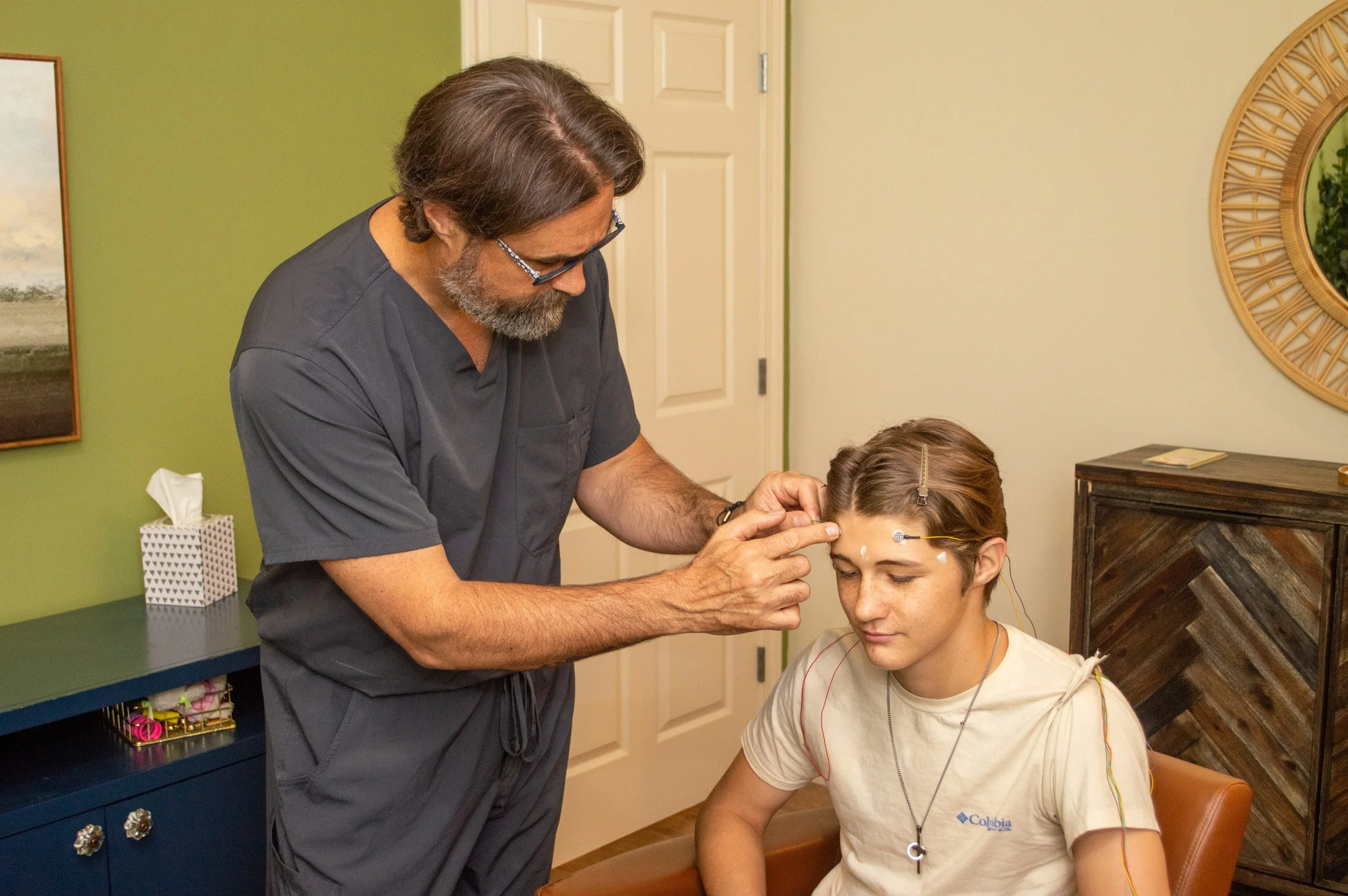MCN for OCD: How Microcurrent Neurotherapy May Help Obsessive-Compulsive Disorder
If your mind never seems to rest—full of intrusive thoughts, repeated “what-ifs,” or compulsions you can’t quite shake—you’re seeing how hard living with Obsessive‑Compulsive Disorder (OCD) can be.
Standard treatments (therapy like ERP, medications) help many people but not always fully or easily. In situations where traditional care only goes part of the way, Microcurrent Neurotherapy (MCN) may offer hope for relief.
This article explains what MCN is, what evidence exists in OCD, what you should ask your provider, and how MCN might integrate into your overall care.
What is MCN?
Microcurrent Neurotherapy (MCN), also called “microcurrent neurofeedback,” uses small, painless electrical currents delivered through sensors on your scalp (and sometimes neck/back) to influence brain-wave patterns and nervous system regulation.
Unlike traditional EEG neurofeedback where you actively “train” your brain through feedback, MCN works by passive regulation.
Your brain receives subtle currents that help it shift toward calmer regulation and restore more balanced patterns of activity. This is where the mental relief comes from.
OCD often involves over-activity in certain brain circuits (like the fronto-striatal loop) and rigid looping thoughts or behaviors. MCN aims to help quiet the “over-firing” and promote more flexible brain state transitions.
Why consider MCN for OCD?
In OCD, the problem isn’t just unwanted thoughts it’s those thoughts holding you hostage, triggering anxiety, compulsion, and a loop you feel stuck in.
Many patients describe mental fatigue, running through “what if” loops, and needing relief beyond just talk therapy.
MCN offers:
A non-pharmacologic option (no new medication required in many cases).
A treatment with low risk of systemic side-effects (when delivered by trained providers).
A potential complement to therapy—helping your brain settle and be more ready to engage in ERP/CBT.
What does the research say for OCD?
Meta-analysis and systematic review
A 2022 meta-analysis of neurofeedback for OCD and related disorders found a moderate benefit: nine studies (1,211 patients) suggested neurofeedback significantly improved OCD symptoms (mean difference ≈ –6.8 on Y-BOCS) compared to controls.
Randomized controlled trials (fMRI/EEG)
One 2023 randomized, double-blind trial using fMRI neurofeedback in 36 OCD patients found the active group had a “slightly but significantly greater” reduction in symptoms compared to sham feedback (p < .05) though no significant difference in target brain control.
Another 2014–2015 RCT (79 patients) found that adding EEG biofeedback to medication + CBT produced higher response in the study group than control (86.5% vs 62.9%) over 8 weeks.
Who is likely to benefit and who may need caution
Good candidate if you:
Have OCD symptoms (intrusive thoughts, checking/cleaning, compulsions) that are stable but not fully resolved by standard treatment.
Are already engaged with therapy (ERP/CBT) and perhaps meds, but want to enhance brain readiness or resilience.
Prefer non-drug or adjunctive options and are motivated for consistent sessions.
Use caution or consult your doctor if:
You have untreated or unmanaged medical conditions causing OCD-like symptoms (thyroid disorders, infections, neurologic issues).
You have an implanted electronic device (pacemaker, neurostimulator) or uncontrolled epilepsy these may contraindicate MCN.
You expect MCN to replace therapy/medication immediately. It’s best treated as a supplement, not substitution.
Conclusion
If you live with OCD and are still searching for relief, Microcurrent Neurofeedback offers a promising, low-risk therapy to your care plan.
Speak with your clinician, ask for their outcome metrics, track your progress and stay committed to your core treatments (therapy + lifestyle + support).
When used wisely, MCN can help your brain find more flexibility and that flexibility may reduce the hold that intrusive thoughts and compulsions currently have.


